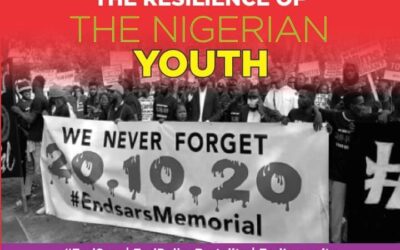Conclusion
African literary icon, Professor Chinua Achebe, on his historic return to the country after 19 years of self-exile, expressed his disappointment with the electoral system in Africa. In a remark made in the presence of the Chairman of INEC, Professor Maurice Iwu, Achebe said “I must confess very profound disappointment with what is happening on the African continent….The idea of a civilised society is one where power is transferred willingly because the law is there but somehow in Africa we still have not learnt that simple but profoundly important fact; that unless you have a process that makes succession easy, even friendly that even opponents can smile, unless we get there, we still have a very long way to go. Politics is not warfare.”
Achebe’s remarks echoes the inner fears of many Nigerians who remain skeptical about the sincerity of President Umaru Yar’Adua and his PDP government to true electoral reforms in Nigeria; and their skepticism is not without reason. President Yar’Adua in his response during the submission of the NERC report to him said his government would do everything within its powers to ensure that the recommendations are fully implemented in order to usher in a credible electoral process in the country. However, recent events have created serious doubts in the minds of observers of Nigerian political process of where exactly the government is headed.
One of such recent events is the President’s feeble response to the botched Ekiti re-run election which was trailed by controversy and intrigues. The election itself was delayed by INEC due to security concerns over gang-related violence believed to be sponsored by some of the political parties. Then the Residential Electoral Commissioner, Mrs. Ayoka Adebayo, resigned her commission over an unwillingness to participate in a process that went “against her conscience,” but suddenly returned to her seat again after conferring with the ruling People’s Democratic Party (PDP). After the election, INEC delayed release of the results for several days before declaring the PDP candidate the winner. But the story does not end here. John Onaji, the presiding officer at the elections in Ido Osi, where the fraudulent electoral votes of 15,939 tilted the election in favor of the PDP candidate , turned into a whistle blower when another INEC official allegedly failed to share N250 million (US$1.7 million) received from one of the political parties to rig the elections. Although 31 INEC officials are being interrogated on their involvement in the bribery scandal, the belated response of the President is seen by many as a ruse, all sound with no fury.
If the story narrated above does not provide enough reason to doubt Yar’Adua’s reform credentials what do we make of the situation where the NERC’s report which is a product of wide consultation with individuals, institutions, state and local governments across Nigeria and which received 1,466 memoranda in addition to public hearings in 12 selected states and the FCT is subjected to further review by a panel set up by the Federal Executive Council to study the report of the draft NERC report and develop the white paper. In a scathing criticism of the President’s sincerity, Professor Wole Soyinka questions, “… what steps has the beneficiary of this generosity [electoral fraud] taken to ensure that we put an end, once for all, to this cycle of electoral impunity that steadily takes its toll on a people’s forbearance? What are the concrete, not rhetorical measures taken? The answer is easily read in the Uwais Panel report on electoral reform. Instead of principled and transparent pro-activity on the document, presidential efforts have been committed to attempting to water down or expunge critical recommendations, so that the commencement of implementation is currently stymied under procedural delays even as the next election looms ever closer. Knowing how pressure of time was deliberately fomented, then exploited, by the Head of INEC – the Institute for National Electoral Chicanery – it surely should be clear to the nation by now that our electoral organizing genius is, without question, being encouraged to utilize the same alibi of ‘decision-making’ to justify what is already looming as another electoral debacle, in which last-minute disorganization will be used to confuse and befuddle the electorate and the electoral process.”
Ladies and gentlemen, that is the parlous state of 10 years of Nigeria’s democracy and her electoral process for you. The problems are much deeper and just wishing that a reform triggered by the current class of inept and corrupt politicians will solve these problems is wishful thinking. Unless a real attitudinal and value change takes place across the political spectrum our democratic evolution will be at best a pseudo evolution. Nigerians committed to a change in how the electoral process is conducted must bring pressure to bear on President Umaru Yar’Adua and the National Assembly to do what is right; provide an electoral system that conforms to the desire of Nigerians. Labor had set the right tone by conducting peaceful mass rallies across Nigeria requesting the Government to implement the NERC recommendations on electoral reform. However, it should not just end with the rallies. Labor and other civil society organizations and political parties ready to stand for what is right must seize the bull by the horns by taking the battle to the National Assembly where Yar’Adua’s 7 bills on electoral reform are being considered to become law. The National Association of Seadogs must take urgent steps to align with organizations of like minds to provide leadership in this struggle to enthrone good governance in Nigeria. May God help us.
Thank you for listening.
References:
i) National Association of Seadogs: Memorandum to the National Electoral Reform Committee, 2008
ii) European Union Recommendations on April 2007 Polls
iii) National Association of Seadogs: Memorandum to the National Political Reform Conference, 2006
iv) National Association of Seadogs: Inputs to the PRONACO Conference, 2006
v) Wole Soyinka: Between Amnesty and Amnesia, 2009
vi) Chinua Achebe’s remarks captured in ThisDay Newspaper
Paper Presented by Mr. Ide Owodiong-Idemeko at The Feast of Barracuda Event hosted by the National Association of Seadogs, Netherlands Chapter, Saturday July 4, 2009, Gaasperplas Public Park, Amsterdam Zuidoost



